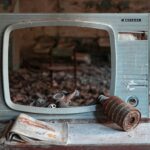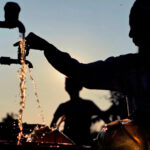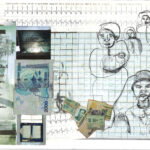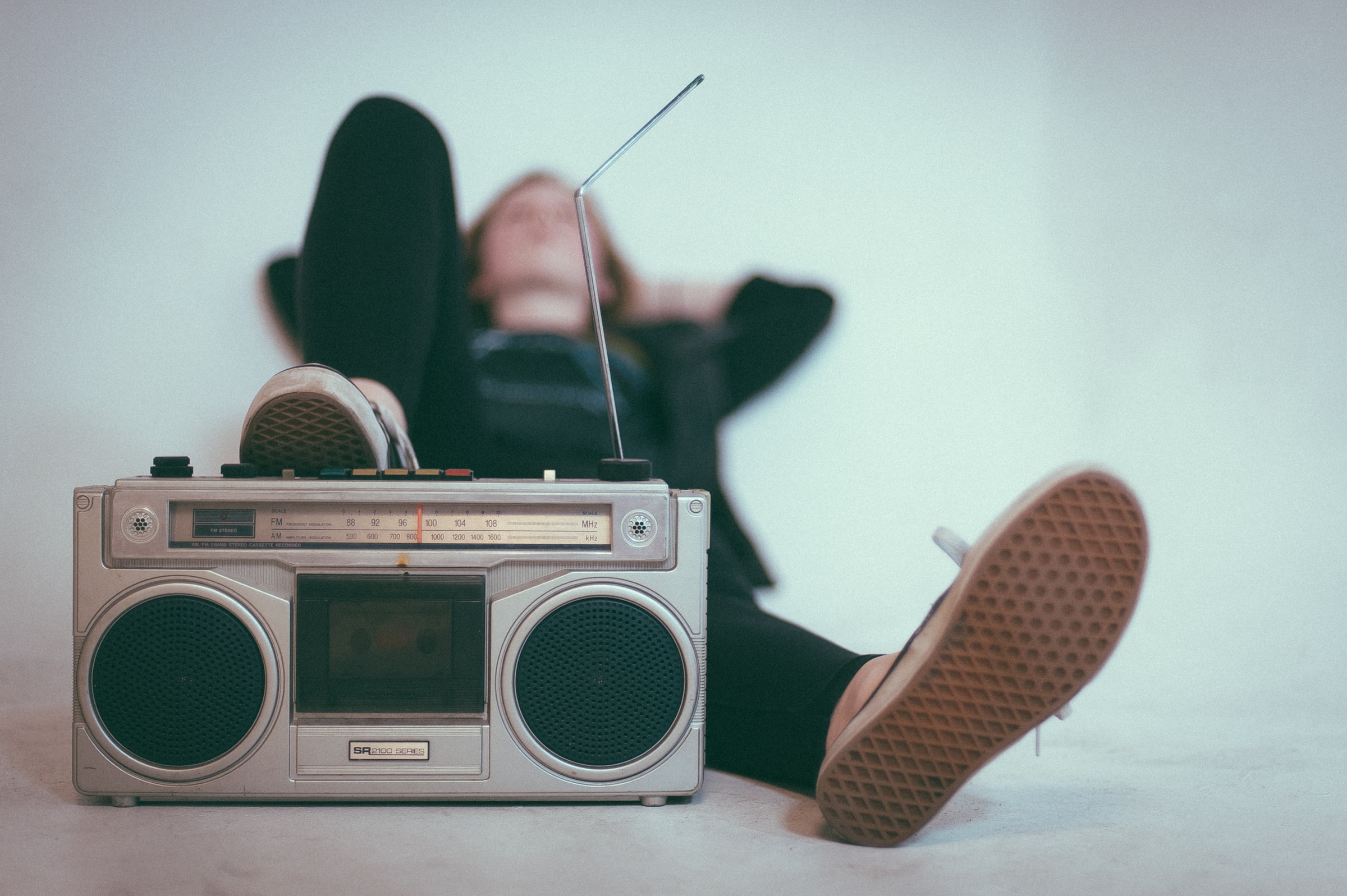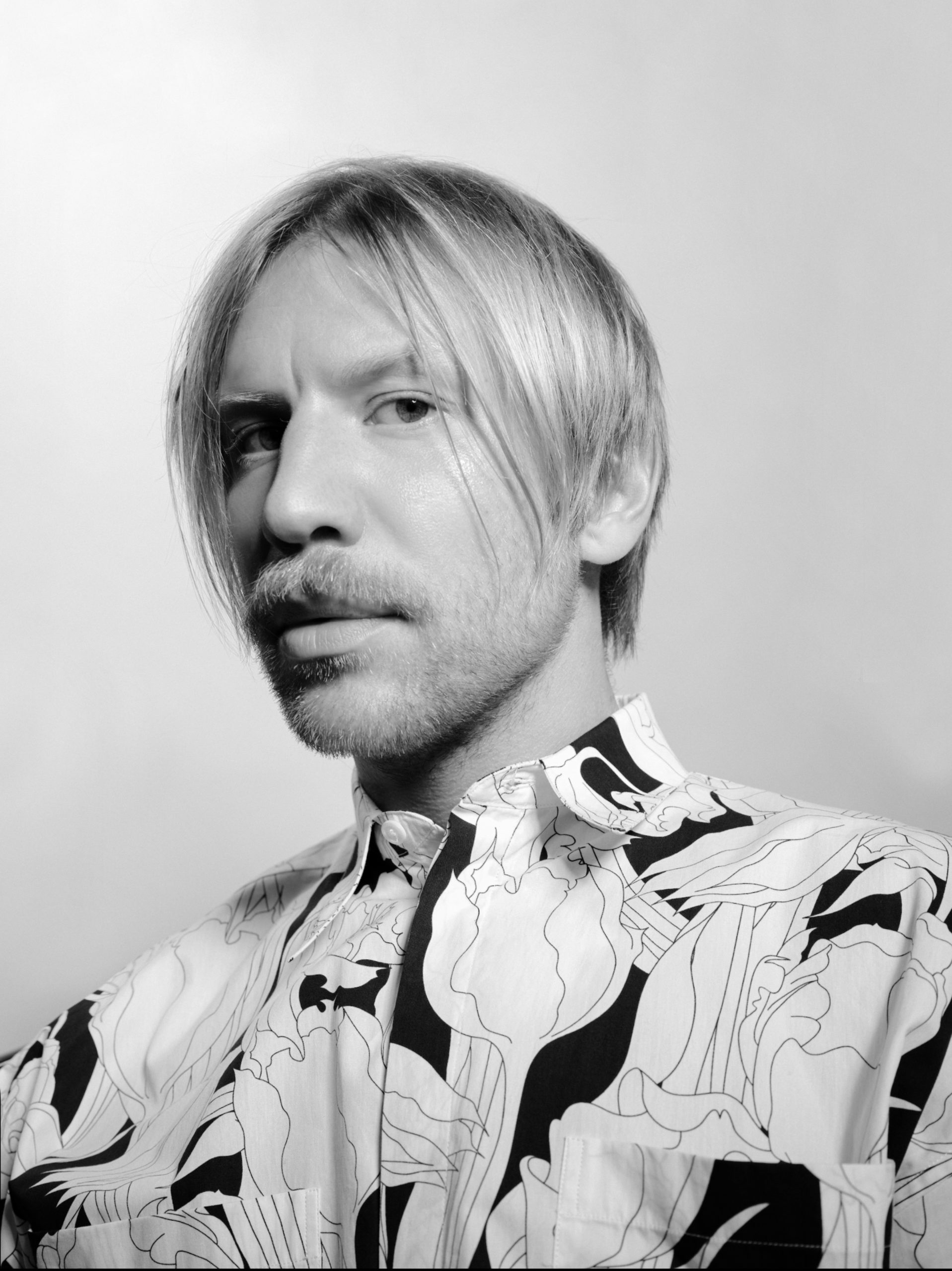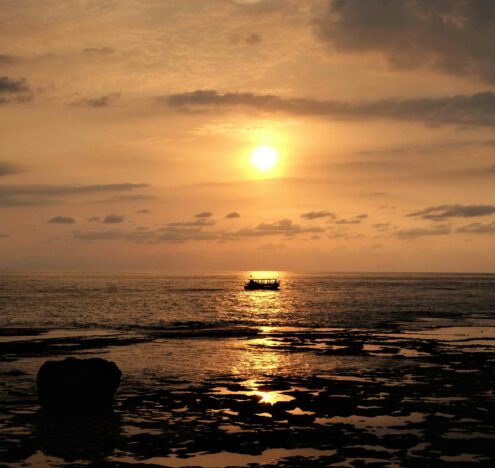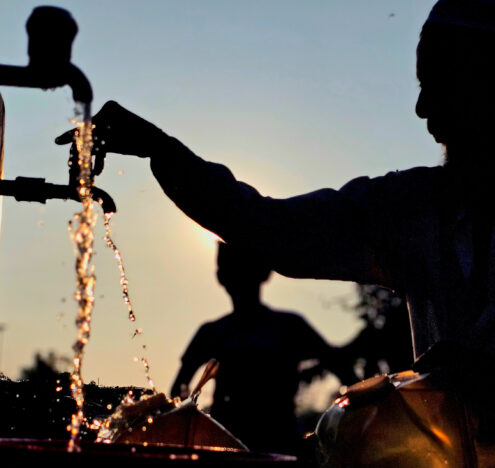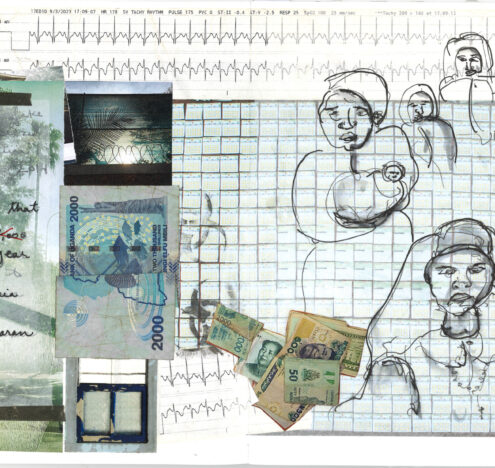When Ivan Dorn finally took the stage, at 1:30 in the morning, the crowd was dying to hear his voice. His all-beige, hipster-fabulous outfit appeared to be built around the pleated khakis he wore, the kind an American dad might wear to work. While he sang, he danced — wild, goofy dancing, as unabashed as a child.
Dorn was getting down to work, in his own eccentric way, and with a new message to the fans he has enthralled over his 10 years of stardom. When an audience member passed up a Ukrainian flag, he wrapped himself in it. The crowd screamed its approval — of the gesture, and no less, of Dorn’s mission to support his native Ukraine in its efforts to combat Russian aggression.
Dorn’s wee-hours concert took place in Batumi, Georgia, this August. More than a standard summer touring schedule, Dorn and his longtime backing band, called DornaBanda, are playing Europe and North America on what they have termed a “Stand Up for Ukraine Charity Tour.” After a summer run of US shows, the group is continuing its campaign of solidarity through music with a string of mostly European performances this fall.
UKRAINE’S CULTURAL RENAISSANCE’S POSTER CHILD
The 33-year-old popstar Dorn has, for the past decade, helped define Russian-language pop music for the post-Soviet regions of the world. He has made a career of blending musical genres and art-school eccentricity, while following the familiar arc of identities from mainstream-pop heartthrob to increasingly bold, sometimes downright weird acts of creative freedom.
Dorn’s adventurous blending of styles has rewarded him with extraordinary commercial and critical success. The Russian cultural website Aficha Daily put two of his albums in the top 10 on a list of 100 total artists in the former Soviet Union in the three decades since the USSR’s collapse. The album Co’n’Dorn, his 2012 debut, earned the number-one spot on Aficha Daily’s list.
Dorn is, in a handful of ways, the poster child for today’s Ukrainian cultural renaissance. The dates of his career move roughly parallel with the ongoing run of Ukrainian political tumult starting in late 2013, which triggered the Maidan Revolution and the Russian-led incursion in the Donbas and Crimea early the following year. The full-scale war that erupted in early 2022 marks an extension, not a beginning, of the conflict from 2014.
Yet, despite the correlation between Dorn’s career and the string of troubles for Ukraine, the artist is an unlikely culture warrior for his country. The singer/songwriter/actor is known for quirky, why-so-serious songs and productions: his music videos have cast him as a dancing astronaut, an un-synchronized swimmer, and a jumpsuited mechanic. In many ways, Dorn is the face of a younger, more hopeful, post-Soviet Ukraine — a symbol of his generation. He has tended to avoid politics, especially after public backlash in 2017, when he called Russia’s incursion in eastern Ukraine and Crimea a simple “quarrel” among “older and younger brothers.”
These days Dorn, who was born in Russia and grew up in Ukraine, is doubling down on his Ukrainian identity. Dorn’s Masterskaya record label and recording studio, located in the Ukrainian capital,Kyiv, has been converted into a shelter and center for war-effort volunteers. Channeling patriotism into music, the artist has taken his calls for Ukraine’s defense, as well as his career, to new levels of seriousness.
POLITICAL RHAPSODY
Dorn’s political boldness has charted its own evolution. The artist long sought to use music to build unity between Ukraine and Russia, according to a New York Times report from July. The war has scuttled that effort, along with the life plans, if not the lives, of thousands of Dorn’s fellow Ukrainians. The article appears to show Dorn resigned to the reality of increasingly fraught relations. He points to the past as an indicator of how the Russia–Ukraine relationship arrived where it stands now.
“We forgot history and now it came back,” Dorn told the Times.
Dorn’s political education has pushed him to act, and create, with increasing urgency. In the war’s first weeks, Dorn joined the chorus of voices calling for Western armament of Ukrainian forces. He released an appeal, in the form of a rap, which was delivered in English on “Save Ukraine Now,” a YouTube channel. If Dorn’s words sound not quite like those of a native anglophone, his message is entirely sincere:
“Dear citizens of [the] civilized world!
I’m asking for your help to spread this word
We are Ukrainians!
Who are very much in need of heavy weapons indeed! […]
Russian missiles are raining down…
Literally destroying us…
So, every weapon from your side
Certainly, saves a dozen lives.”
Such plainspokenness is a long way from playing down the earlier years of the Russia–Ukraine war as a “brothers’ quarrel.”
However, not all trained observers of Ukrainian culture buy into Dorn’s activism through music. Some see Dorn’s continuation of normal life as contemptible when so many Ukrainian creatives and others have interrupted their careers to go fight.
Yet, such sentiments are not the only ones the Ukrainian public holds for Dorn and his efforts. And if most in Ukraine are unaware that Dorn has deployed his influence and resources for his country’s cause — without being physically present on the front lines — his work and his fundraising appear to be making a difference all the same.
Dorn’s political education has pushed him to act, and create, with increasing urgency.
Whatever the attitudes about Dorn in or beyond Ukraine, the artist appears poised to continue his campaign for peace in his country, and on his own terms. His upcoming concert schedule with Dornabanda includes Tel Aviv, Vienna, Barcelona, London — in short, a comprehensive tour to help keep solidarity with Ukraine alive.
Dorn did not respond to Inkstick, opting not to comment on the remarks of his critics or respond to other questions, despite repeated requests for comment.
Back in Batumi, Dorn looked determined to use his music — and his weirdness — to rally support for Ukraine. He sweated through his 90-minute set as well as his beige tee-shirt, which he removed midway through to the delight (and screams) of the crowd’s female contingent. If Dorn’s heartthrob status is not quite behind him, then perhaps his new identity as a Ukrainian culture warrior is not quite fully mature. His khaki pants suggest he’s keen to keep working at it and to deploy his talent, positivity, and stage-friendly charm like so many weapons of battle.
At three in the morning, exhausted after a demanding show, he smiled widely to the Batumi crowd, held up a friendly fist, and called out: “Thank you so much. Hang in there.”
William Fleeson is a writer and former business reporter. His work has appeared in BBC Travel, Narrative, National Geographic, Newsweek, and some really obscure magazines. In longform narrative he was a finalist for the New Millennium Writing Award in 2020 and again in 2021. He holds graduate degrees from Columbia University and Georgetown University and lives in Washington, DC, where he was born. www.willfleeson.com
Correction 10/03: A quote was removed





